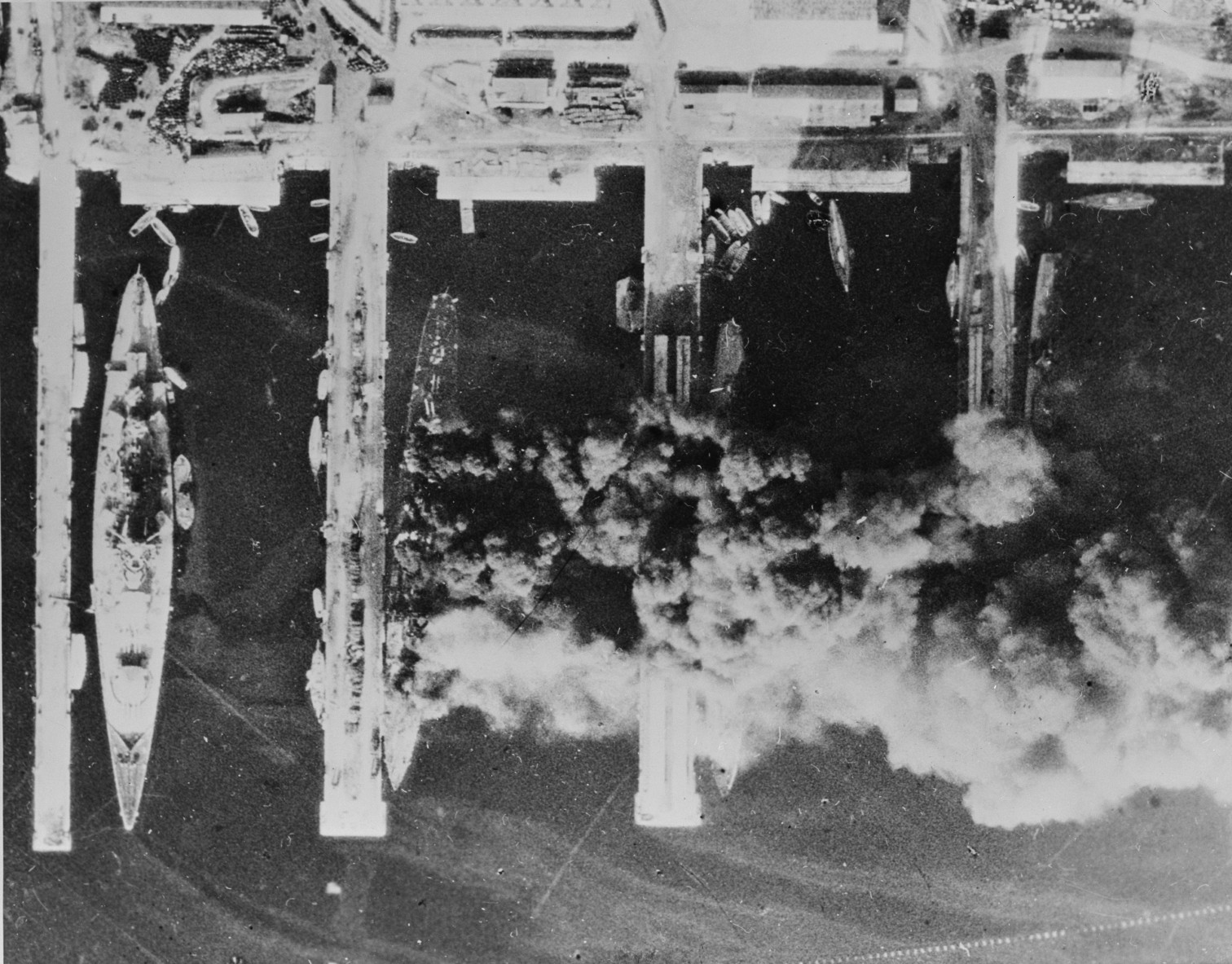
Scuttling of the French fleet at Toulon
The scuttling of the French fleet at Toulon was orchestrated by Vichy France on 27 November 1942 to prevent Nazi German forces from seizing it.[2] After the Allied invasion of North Africa, the Germans invaded the territory administered by Vichy under the Armistice of 1940.[3] The Vichy Secretary of the Navy, Admiral François Darlan, defected to the Allies, who were gaining increasing support from servicemen and civilians.[4] His replacement, Admiral Gabriel Auphan,[5] guessed correctly that the Germans intended to seize the large fleet at Toulon (even though this was explicitly forbidden in the Franco-Italian armistice and the French-German armistice),[6][7][8] and ordered it scuttled.[9]
The Germans began Operation Anton but the French naval crews used subterfuge to delay them until the scuttling was complete.[10] Anton was judged a failure,[11] with the capture of 39 small ships, while the French destroyed 77 vessels; several submarines escaped to French North Africa.[12] It marked the end of Vichy France as a credible naval power[13] and marked the destruction of the last political bargaining chip it had with Germany.[14][15]
Context[edit]
After the Fall of France and the Armistice of 22 June 1940, France was divided into two zones, one occupied by the Germans, and the zone libre (free zone).[16] Officially, both zones were administered by the Vichy regime. The armistice stipulated that the French fleet would be largely disarmed and confined to its harbours under French control, but the French fleet did cooperate with Nazi Germany although the French retained ultimate operational control over their ships.[6][17][18] The Allies were concerned that the fleet, which included some of the most advanced warships of the time, might fall into German hands (especially the British who considered it to be a life-or-death matter)[19][20] and the British attacked the French fleet at Mers-el-Kébir on 3 July 1940 and at the Battle of Dakar on 23 September 1940.[21][22]
On 8 November 1942 the Allies invaded French North Africa in Operation Torch. It may be that General Dwight Eisenhower, with the support of President of the United States Franklin D. Roosevelt and British Prime Minister Winston Churchill, made a secret agreement with Admiral Darlan to give him control of French North Africa if he defected to the Allies.[23][4] An alternative view is that Darlan was an opportunist and switched sides for self-advancement, thus becoming titular head of French North Africa.[24]
Following the Allied invasion of French North Africa, Adolf Hitler ordered Case Anton, the occupation of Vichy France and reinforced German forces in Africa.
Prelude[edit]
Political aspect[edit]
Beginning 11 November 1942 negotiations took place between Germany and Vichy France. The resolution was that Toulon should remain a "stronghold" under Vichy control and defended against the Allies and "French enemies of the government of the Maréchal".[25] Grand Admiral Erich Raeder, commander of the Kriegsmarine, believed that Vichy French Navy officers would fulfill their duty under the armistice to not let the ships fall into the hands of a foreign nation.
Raeder was led to believe that the Germans intended to use anti-British sentiment among French sailors to get them to side with the Italians. Hitler in fact intended to seize the fleet and have German sailors capture the French ships and turn them over to Italy; German officers privy to this plan objected but Hitler ignored them and gave orders to implement the plan on 19 November.
On 11 November, as German and Italian troops encircled Toulon, the Vichy Secretary of the Navy, Admiral Gabriel Auphan, ordered Admirals Jean de Laborde and André Marquis to: